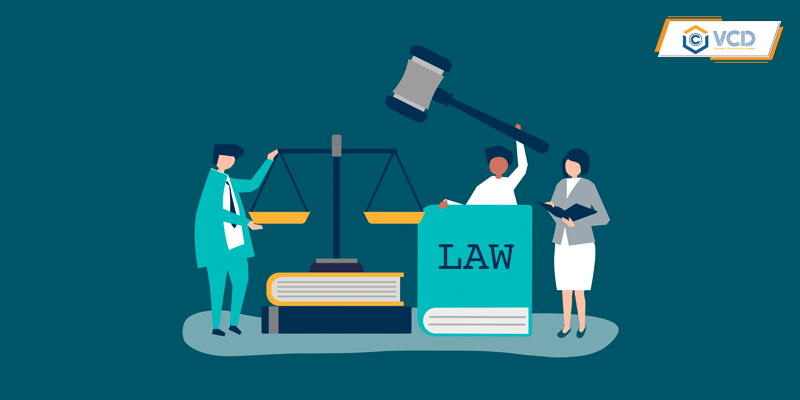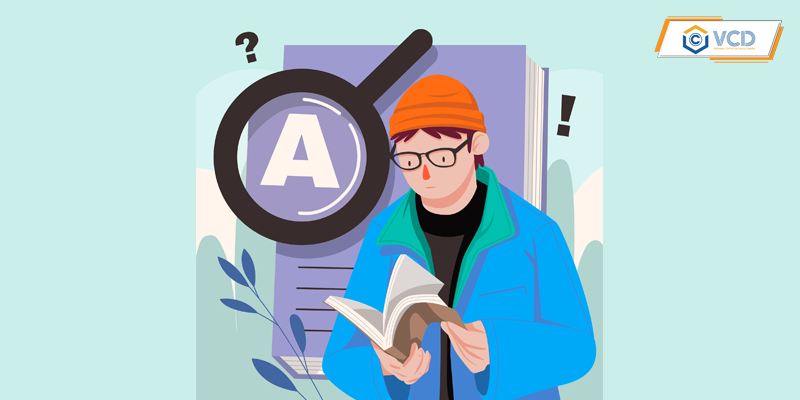Which court has jurisdiction to resolve copyright disputes?
When copyright is infringed, filing a lawsuit is an important legal solution to protect the legitimate rights and interests of the author and owner of the work. However, for the case to be properly accepted and resolved, a prerequisite is to correctly identify which court has jurisdiction to resolve the copyright dispute. This article from VCD will help you answer this question in detail!
What is a copyright dispute?
Current law does not have a direct definition of “copyright dispute.” However, based on Clause 1, Article 4 of the 2022 Intellectual Property Law: “Intellectual property rights are the rights of organizations and individuals to intellectual property, including copyright and related rights, industrial property rights, and rights to plant varieties.”
From this, it can be understood that copyright disputes are disputes arising between parties related to:
- The author’s moral rights;
- Property rights over the work;
- The right to use, exploit, transfer, and inherit copyright;
- Acts of copyright infringement.
Examples: Disputes over unauthorized copying of a work, unauthorized use of a work, disputes over copyright transfer contracts, disputes over who is the true author of a work…

Forms of copyright dispute resolution
According to the Intellectual Property Law and procedural law, copyright disputes can be resolved by the following methods:
- Negotiation;
- Mediation;
- Administrative handling;
- Arbitration (if agreed upon);
- Lawsuit in court.
In this context, the Court is the most comprehensive and thorough authority to resolve disputes, especially complex disputes involving large claims for damages or the determination of copyright ownership.
Which court has jurisdiction to resolve copyright disputes?
The determination of which court has jurisdiction to resolve copyright disputes is primarily based on:
- The 2015 Civil Procedure Code;
- The 2022 Intellectual Property Law;
- Implementing regulations.
According to Article 26 of the 2015 Civil Procedure Code: “Disputes concerning intellectual property rights and technology transfer between individuals and organizations, all with the purpose of profit” fall under the jurisdiction of the Court.
Thus, copyright disputes are a type of civil dispute falling under the jurisdiction of the People’s Court.
Jurisdiction of provincial people’s courts in copyright disputes
According to Clause 1, Article 37 of the 2015 Civil Procedure Code, provincial People’s Courts have first-instance jurisdiction over: “Civil disputes with foreign elements; disputes falling under the jurisdiction of district courts but of a complex nature or at the request of the parties.”
Regarding copyright disputes, provincial People’s Courts usually have jurisdiction in the following cases:
- Involves foreign elements (authors or owners are foreigners; works are exploited abroad, etc.);
- Complex disputes with high value;
- Requests for the application of interim injunctive measures;
- According to specific provisions of intellectual property law.
Jurisdiction of district people’s courts in copyright disputes
According to Clause 1, Article 35 of the 2015 Civil Procedure Code, District People’s Courts have jurisdiction to resolve civil disputes in first instance proceedings, except for disputes falling under the jurisdiction of Provincial People’s Courts.
In practice, district people’s courts can resolve copyright disputes that:
- Are simple in nature;
- Both parties are domestic individuals or organizations;
- Do not involve foreign elements;
- Do not fall under cases that the law stipulates must be resolved by Provincial People’s Courts.
Some notes when filing a copyright dispute lawsuit in court
Filing a copyright dispute lawsuit in court is a legal process that requires the plaintiff to prepare thoroughly in terms of documents, evidence, and a strategy to protect their rights. To ensure the case is accepted and resolved smoothly by the court, the plaintiff needs to pay special attention to the following important issues:
- Prepare evidence proving copyright ownership (original works, copyright registration certificates, contracts, creative documents, etc.);
- Correctly identify the defendant and the competent court;
- Clearly define the claim (establishing rights, compensation, cessation of infringement, etc.);
- The statute of limitations for filing a lawsuit as stipulated by civil law;
- The possibility of requesting the application of interim injunctions to prevent further infringement.
The above are the basic contents clarifying “Which court has jurisdiction to resolve copyright disputes?” according to current law. Identifying the correct competent authority from the outset not only facilitates the litigation process and ensures proper procedures, but also contributes to effectively protecting the legitimate rights and interests of authors and copyright owners during dispute resolution in court.
Sincerely,
Copyright registration is not a mandatory condition for filing a lawsuit. However, a copyright registration certificate is important evidence that facilitates proving rights in court.
The court can order the cessation of infringing acts, require compensation for damages, an apology, a public correction, and apply interim injunctions to prevent further infringement.



















